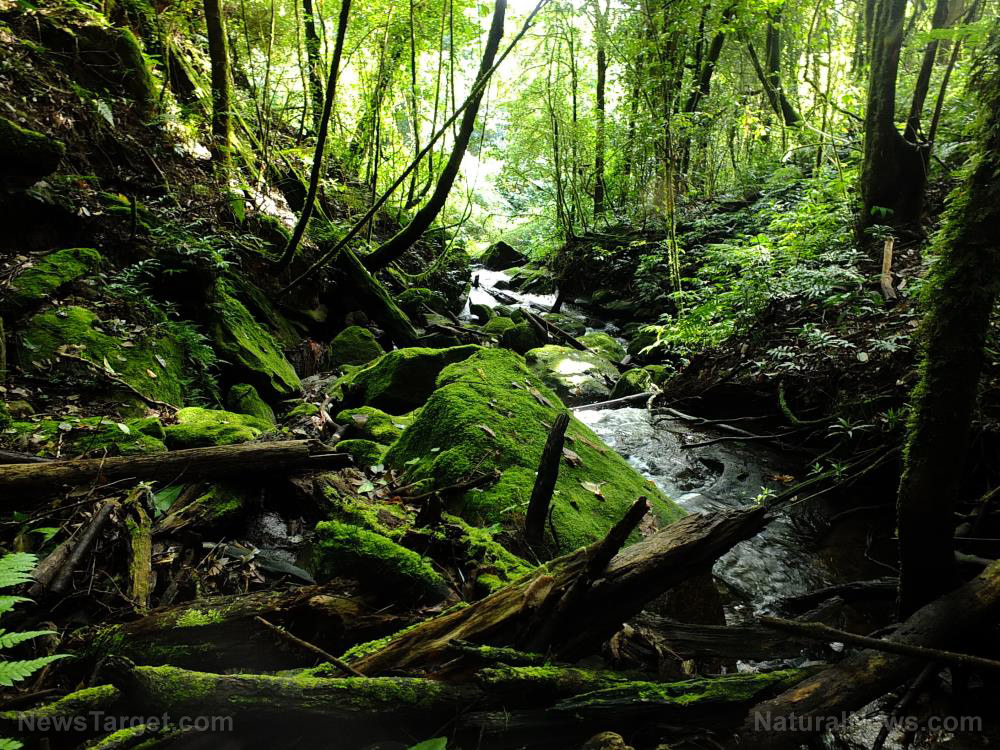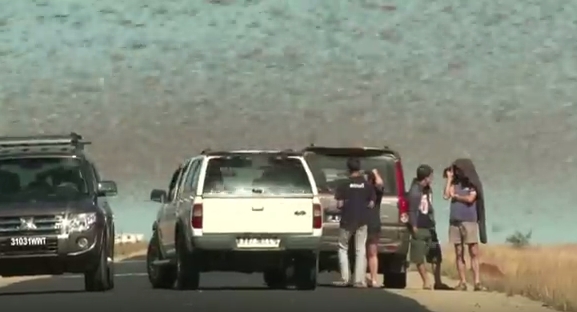 Parler
Parler Gab
Gab
1. Stay put
Stop moving the minute you realize you're lost. There is a chance that you're only a few meters from your original path. If you continue walking around, you risk getting lost further in the thicket.2. Use the STOP method
STOP is a useful mnemonic for survival. It stands for the following:- Stop. Find a place to sit and take long, deep breaths to calm yourself down.
- Think. Recall what you know about the location. Were there twists and turns? Did you encounter other people? These bits of information can be extremely helpful.
- Observe. Use your compass or map if you have them. Look around for landmarks, footprints or any indicators that you can use to trace your way back.
- Plan. Consider all your options. You may continue taking the path ahead or turn back and follow your trail.
3. Make an inventory of your resources
Take all items out of your travel or bug-out bag and do an inventory. Estimate how long you can last in the wilderness given the amount of food you have at hand. Also, check what items you keep in your first-aid kit. It pays to reacquaint yourself with your belongings so you know what to watch out for. (Related: Learn these five types of edibles to prepare for wilderness survival.)4. Build a shelter
Whether you should build a shelter or not depends upon the environment and what items you have brought with you. If you're lost in a snow-packed mountain, then it's necessary to build a makeshift shelter or pitch your tent if you have one to protect yourself from the elements. If you're building a shelter, it's important that you have a pocket knife so you can make the most of whatever natural resources lay near.5. Look out for people
Whether you're at rest or traveling through the woods, always be on the lookout for people. Look for flattened underbrush, food wrappers, old campsites and any other traces of human activity. If you find any of these, look around and trace the path that other hikers followed. Doing this can lead you out or bring you to an active campsite.6. Stay hydrated
Sip water periodically to stay hydrated. If you're stranded for prolonged periods, look for a source of drinking water. There are several ways to purify water in the wild using the most basic of resources.7. Start a fire
A small campfire keeps insects away and signals your location to other people who may be nearby. Pick up dried grass, twigs or anything you can use as tinder and kindling. There are several ways to start a fire without matches or a lighter.8. Keep yourself warm
Speaking of fires, hypothermia is one of your biggest enemies if you get lost in the wild. Keep yourself warm by starting a fire and wrapping yourself with thick, heavy clothing.9. Stick to an open space
Staying in a clearing puts you close to other people since most open spaces in the wilderness are created by human activity. Also, if you're out in the open, a low-flying aircraft that happens to fly by can easily spot you. The pilot can radio your location, so stay put and wait for help to arrive. Getting lost in the woods entails more than just finding your way. It's also a matter of surviving the wilderness and being self-reliant. Keep these tips in mind if you're about to bug out, camp or hike. Sources include: Survivopedia.com TheSurvivalCorps.com TheSmartSurvivalist.comThe end of meat? Dutch “green” policies force dairy farmer to cull 95% of his herd
By Ethan Huff // Share
Food supply 101: How to grow edible mushrooms in your home garden
By Zoey Sky // Share
Home gardening tips: How to grow and harvest radishes
By Zoey Sky // Share
Giant swarms of locusts ravage over 80% of crops and livestock feed in region of Russia
By Belle Carter // Share
Glen Canyon Dam close to shutting down as Lake Powell water levels continue to drop
By Arsenio Toledo // Share
Fact check: No, RFK, Jr. did not say COVID was an ethnically targeted bioweapon that spared Jews
By healthranger // Share
Top 10 signs you might be an obedience idiot
By healthranger // Share
By newseditors // Share
Dangerous heat wave expected to set record highs throughout US South and Southwest
By isabelle // Share
Secret Service admits it found marijuana twice at the White House in 2022
By arseniotoledo // Share











